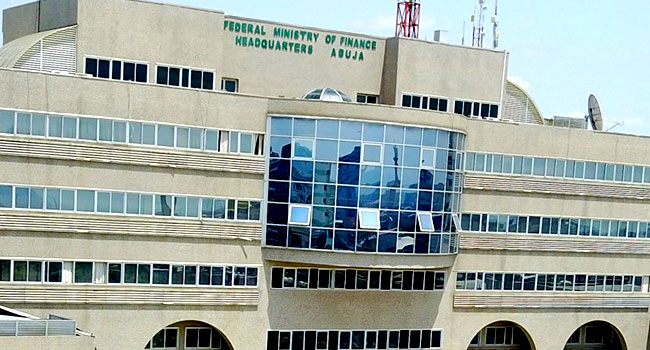BY NICHOLAS ADERINTO
In today’s fast-paced and demanding healthcare environment, the relationship between patients and doctors has become increasingly complex. While patients rely on doctors to provide them with quality care, doctors, in turn, rely on patients to respect their rights, including their right to be treated with dignity and to have their personal and professional boundaries respected. Unfortunately, cases of patients being disrespectful, abusive, or violent towards doctors are becoming more frequent, leading to a decline in doctors’ job satisfaction and an increase in burnout and stress-related illnesses. This tension affects not only the individual doctors but also the overall quality of patient care. There is a need to explore the critical role that patient respect plays in the doctor-patient relationship and why it is essential for the well-being of patients and doctors.
It is a sad reality that patients often disrespect physicians. This behaviour can range from verbal abuse to physical violence, and it has a severe impact on the well-being and job satisfaction of doctors. But what leads patients to act in such a way? The answer is not simple, as there can be multiple reasons why patients may disrespect physicians. One of the main reasons is a lack of understanding. Patients often do not fully understand the role of doctors or the medical profession, which can lead to misconceptions and misunderstandings. They may also not understand the complex and challenging nature of the healthcare system, leading to frustration and helplessness.
Another reason is the power imbalance that often exists between patients and doctors. Patients often feel at the mercy of doctors and the healthcare system, leading them to feel disempowered and act disrespectfully. Personal issues can also play a role in patients’ disrespectful behaviour. They may be dealing with stress, anxiety, or mental health problems that can lead to them behaving disrespectfully toward doctors. Societal attitudes towards doctors can also contribute to patients’ disrespectful behaviour. When doctors are viewed as authority figures or as people who are not to be questioned, it can lead to patients feeling like they have to be submissive or passive, which can further exacerbate the power imbalance between patients and doctors. Nonetheless, it is important to remember that disrespectful behaviour towards physicians is unacceptable. It harms not only the individual physician but also the healthcare system and society as a whole.
Advertisement
The doctor-patient relationship is built on trust, communication, and mutual respect. As such, both patients and doctors must have certain rights within this relationship. For doctors, these rights include the right to informed consent, the right to be treated with respect, and the right to professional boundaries.
The right to informed consent means that doctors have the right to expect that patients will provide informed consent for any medical procedures or treatments and that they will understand the risks and benefits involved. This ensures that patients are fully informed about the medical decisions that will affect them and that they can make informed choices about their care.
Doctors also have the right to be treated with respect. They have the right to expect that patients will treat them with respect and courtesy and that they will not be subjected to verbal or physical abuse. This creates a healthy and respectful environment where patients and doctors can feel safe and comfortable. Similarly, doctors have the right to expect that patients will respect their professional boundaries and that they will not engage in behaviour that is inappropriate or makes them uncomfortable. This allows doctors to maintain the integrity of their profession and to provide the best possible care to patients.
Advertisement
Doctors are trained professionals who have dedicated years of their lives to studying and practising medicine. They have the knowledge and skills to diagnose and treat patients, and their expertise is essential for maintaining good health. Disrespecting doctors undermine their professionalism and devalues the time, effort, and expertise they have put into becoming a doctor.
Furthermore, disrespectful behaviour towards doctors creates a hostile work environment, leading to burnout and stress-related illnesses among doctors. This can ultimately affect the quality of care provided to patients, as doctors who are stressed and burnt out are less able to provide effective care. When patients disrespect doctors, it can create a barrier to effective communication and make it difficult for doctors to provide the best care. Most importantly, it is vital to remember that doctors are also human beings with personal and professional boundaries, and they have the right to be treated with dignity and respect, just like any other person.
Education is one of the key ways to improve patients’ respect for doctors’ rights. By educating patients about the role of doctors and the medical profession, misconceptions and misunderstandings can be reduced, and a greater understanding and respect for the work that doctors do can be fostered. Empowering patients to take an active role in their healthcare can also help to reduce the power imbalance between patients and doctors. It can foster a sense of mutual respect and collaboration.
Encouraging open communication between patients and doctors is another important step in improving patients’ respect for doctors’ rights. By promoting open communication, trust and understanding can be built, making it easier for patients to express their concerns and for doctors to address them. Implementing a zero-tolerance policy for verbal or physical abuse towards doctors can also help to create a safer working environment for doctors and can set clear boundaries for patients.
Advertisement
Improving patients’ respect for doctors’ rights is essential for the well-being of doctors and the provision of high-quality care to patients. It is a complex issue that requires a multifaceted approach involving education, empowerment, open communication, and a zero-tolerance policy for abuse. By taking these steps, the health system can foster a culture of mutual respect and understanding in the healthcare setting and ensure that both patients and doctors benefit from a positive and respectful doctor-patient relationship. It is important to remember that this is a continuous process that requires the effort of all the actors involved, including patients, doctors, healthcare institutions, and the government.
Nicholas Aderinto is a sub-editor at the African Liberty. When he is not writing, he is practising holistic medicine as a doctor. He can be contacted via [email protected]
Views expressed by contributors are strictly personal and not of TheCable.
Add a comment






